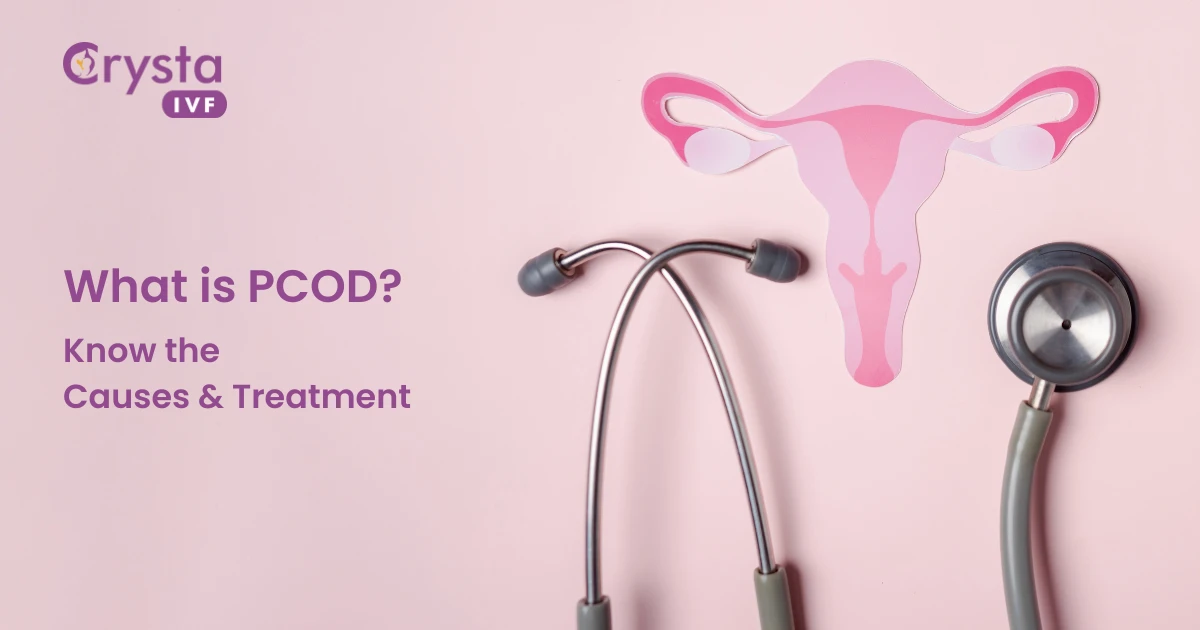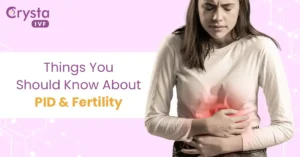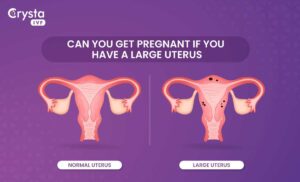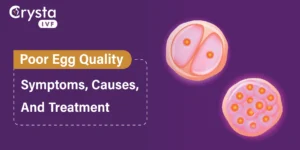Women’s reproductive health is a matter of utmost observance! When it comes to women’s reproductive health or fertility, many diseases wreak young women. One such disease is polycystic ovarian disease or syndrome or PCOD/PCOS.
Women often discuss or talk about PCOD conditions especially when they are in their late 20s or 30s. Women are experts in their bodies and they understand when something doesn’t feel normal! And they get extra concerned when they get married and start planning to extend their family.
This is the time when they give special attention to their fertility health. Missing a period and still ending up with a negative pregnancy test result is daunting for a woman who is trying to get pregnant. But having missed periods is not always connected with pregnancy and in various cases, this could be an alarming sign of irregular periods, ovulation problems, or PCOD.
Over time, women get used to and learn to deal with problems like unwanted hair, acne, weight gain, heavy or late periods, etc. Many of you may start looking for anti-acne treatments thinking that the cause may be related to environmental factors. But it is not always the case and these are the alarming signs your body indicates and you should start giving attention to these symptoms.
Apart from environmental factors, there could be some medical conditions associated with these symptoms like PCOD. And in such a case, early diagnosis and early treatment will prove to be helpful for your overall health and will help you get pregnant. The lifestyle you choose to live in affects several metabolic functionalities including hormonal health. To understand it better, let us first understand what is meant by PCOD, the possible symptoms, and how it can be treated.
What is the PCOD problem?
Polycystic Ovarian Disease, also popularly named Polycystic Ovary Syndrome (PCOS) is a common condition of hormonal imbalance, which affects over 5% to 10% of women age between 12 and 45 years. That’s a lot! It is a condition of reproductive health in which a woman’s hormones get imbalanced. It can lead to issues related to the menstrual cycle and make conception difficult. The primary characteristics of the PCOD problem in women include the following:
- No ovulation
- Irregular periods
- Acne (face, back, etc)
- Male pattern balding
- Infertility
- Hirsutism, etc.
If left untreated, It can lead to insulin-resistant diabetes, obesity, and high cholesterol leading to cardiac diseases.
What are the causes of the PCOD problem?
While looking for the treatment of the PCOD problem, most women undergoing this condition forget to ask their physician that what happens in PCOD and what is the cause of PCOD? The full form of polycystic ovarian disease includes cysts but the real cause of PCOD is not associated with cysts.
Cysts are a symptom of the metabolic and hormonal condition that’s happening inside the body. The cysts are egg follicles that don’t release when ovulation was about to take place. In PCOD condition, the egg follicles remain ‘stuck’ on the ovary and take the form of cysts.
A notable 25% of women are diagnosed with poly (many) cystic ovaries. Also, women with PCOD conditions have high androgen levels. Thus, while talking about the cause of PCOS, it is the high androgen levels that affect this condition.
PCOD Problem Means!
There is a genetic constituent to evolving high androgens and PCOD. However, these genes can be activated and deactivated by various factors. It is known as epigenetics. Women with PCOS genes become more prone to developing the condition under suitable environmental factors. This means getting rid of these environmental factors, i.e., treating the root cause of PCOD, then one can reverse the PCOD symptoms.
Polycystic ovary disease is associated with hormonal imbalance in the reproductive hormones. In PCOD, these hormones start making slightly more androgens. This leads women to stop ovulating, get acne and grow extra facial and body hair.
Follicles are sacs within the ovaries that comprise eggs. Generally, one or more eggs are released during the menstruation cycle of a woman. This is known as ovulation.
In polycystic ovary disease, the eggs in the follicles fail to mature and don’t get released from the ovaries. Instead, they can take the form of small cysts in the ovary.
PCOD seems to be genetic sometimes, so the chance of having it is higher if other women have a history of PCOD related issues, irregular periods, or diabetes
Ways to enhance fertility with PCOD
Women diagnosed with polycystic ovary disease (PCOS) experience difficulty in conceiving. PCOD is one of the most common factors in women diagnosed with infertility. Women with this PCOD have increased levels of male hormones commonly known as androgens. This hormonal imbalance can intervene with ovulation disorders. Although having PCOD may make conceiving more difficult, there are ways women can enhance fertility.
1. Medications
In a case where a healthy egg fails to release at the time of ovulation, conception fails to take place. The reason behind this is the increased levels of androgens that affect ovulation. Physicians or fertility specialists are recommended for ovulation medications. The medicines help a woman ovulate to conceive.
2. Weight management
Obese people are prone to have PCOD conditions, which resultantly affect their fertility health. It has been observed that women who have lost a mere 10% of body weight witnessed improved ovulation and hormones. Regular exercise and a healthy diet regime can help you get rid of polycystic ovarian disease. For effective results of having improved fertility, you need to keep a check on your weight and get indulged in a workout for 3-5 days a week.
3. Stress management
Stress can lead to obesity and many other conditions that affect the fertility and reproductive health of a woman. Women experiencing infertility should work on stress management as stress can negatively affect the hormones and fertility health of a woman. Excess levels of stress can lead to a significant increase in insulin and higher levels of cortisol hormone. Women struggling with infertility are advised to engage themselves in regular meditation, counselling sessions, exercising, etc.
4. Fertility treatments
In cases where ovulation boosting medications fail to work, Assisted Reproductive Technology (ART) procedures are recommended to women diagnosed with PCOD or infertility issues. Several research studies have shown that women experiencing PCOD conditions have improved their chances of getting pregnant with In Vitro Fertilization (IVF) treatments.
Apart from this, women diagnosed with PCOD should keep a check on their sugar levels. High blood sugar levels can lead to fertility disorders. Certain lifestyle changes can often help enhance your overall health while eliminating the anxiety that can significantly affect your ability to get pregnant.
Take Fertility Help for PCOD
By the end of this write-up, we assume that you must have got your answers to questions related to what is PCOD problems are in females or what happens in PCOD? There are several medical and non-medical ways to deal with PCOD and related problems. Understanding the symptoms and causes of PCOD in women and getting timely treatment for your condition will help you improve your chances of getting pregnant.
To read in Hindi click here:
पीसीओडी से क्या समस्याएं आती हैं?




